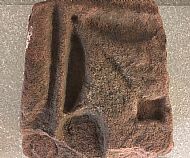Letter to Annie Ross
WORLD WAR I: (27 July 1914- 11 November 1918)
On 19 May 2016 there was an article in the Ross-shire Journal saying that 30 girls from Avoch had gone to work in Boots pharmacy in Nottingham.
THIS IS A LETTER WHICH COULD HAVE BEEN WRITTEN
TO A MISS ANNIE ROSS IN AVOCH FROM HER SISTER MARY IN NOTTINGHAM
Nottingham – Sunday, 16 July 1916
My dear Annie
Jane told me she saw a ghost! I don’t think I believe in ghosts, so I just said “Oh?” Jane said it was her brother, Alfie! That was about two weeks ago and I didn’t think any more about it but on Tuesday the family received a telegram saying that Alfie, who is with the Sherwood Regiment in France, was ‘missing, believed dead’. The whole Smith family is in mourning. Mrs Smith cries a lot of the time, but Jane is convinced he is still alive. She thinks Alfie’s ghost was trying to tell her something. Every night before we go to bed Jane and I pray for him, her father, our father and our Jack - and all the other soldiers (especially the Sherwood Foresters and Seaforth Highlanders) and all the sailors and nurses and, of course, all of you at home in Avoch. I suppose the people in Germany pray to God too – but they would pray that Germany will win the war. I asked the Rev Mann how can God decide? But he didn’t have an answer. I told Jane that in Avoch the local fishermen bury a black cock under the bed to scare off any ghostly visitors. She didn’t think that was a good idea – but it made her laugh!
I am so glad I am now helping with the war effort. When you and I went to the meeting in Avoch in April last year and heard the speaker saying that women could help King and Country by doing men’s jobs, so that the men could go to fight, I wanted to go off right away, but Mother persuaded me I was too young. Then this year – now I am 17 - and with all the talk about women being able to help to win the war, I was convinced I should volunteer. I know you wanted to come too – but you are only 14 and Mother needs you at home. I know too, that you and Mother didn’t want me to leave, but I am glad the Reverend Mann managed to persuade her. He and the Reverend Kerr were both very kind on our journey to Nottingham, telling us stories and making sure we had all our tickets, registration cards and travel passes with us and enough to eat and drink. Mr Mann told us about when he was young and decided to leave Avoch to study to become a church minister. He said how strange he felt leaving a quiet village where everyone knew each other and go to live in a big city full of strangers. He understood how we all felt leaving home to go to Nottingham to work at Boots Pharmacy. The train journey was so long. The smoke from the steam engine made me cough, and splattered black spots of soot on my clothes. And when we arrived in Nottingham it didn’t seem at all friendly – so different from the fresh sea air and small cottages at home. Nottingham is a long way from the sea – the air smells of coal dust and smoke – the tall buildings are black with soot – no friendly faces, just strangers hurrying past. It is so dirty and noisy. I felt dizzy - but fortunately I had some smelling salts with me - and I just wanted to come home. There are so many buildings – factories, houses, cinemas, dance halls, theatres and public houses. Jane says some of them are now being used for billeting soldiers. There certainly aren’t many dances but there are concerts and lectures. Some of the cinemas are open and last week I went with Jane to see a film with news about the war. I felt so proud when we all stood up at the end and sang “God Save the King”.
Mother will have told you that I am lodging with Mrs Smith, her daughter, Jane, and Jane’s granny. Jane’s father and brother are both with the Sherwood Foresters. Jane is about a year older than me and I share her bedroom. Jane and her mother work at Boots too. The Smith family are very kind to me. Mrs Smith gave me a big hug when I arrived and said “Ay up me duck, come on in!” I almost laughed at being called a duck. Not all the other Avochies are quite so lucky. When I first arrived some of the local children were laughing and shouting at me and saying they couldn’t understand what I said. I was in tears, but Mrs Smith came out of the house and boxed the ears of the ring-leader. She told them all to behave themselves and said she would speak to their mothers. I had no problem after that!
On our first day at Boots the manager spoke to all of the women from Avoch – thirty of us. He thanked us for coming to Nottingham and told us that we would be a great help in winning the war. He said that before the war Germany was the world leader in pharmaceuticals and it was essential that Britain made replacements very quickly. I am making vermin powder. It’s really needed in the trenches. Jane is making anti-fly cream which is also used a lot at the front. Boots also make matchless tinder lighters, anti-gas cream, water sterilisers, iodine tubes, quinine, aspirin and saccharine. One of Jane’s friends, Louise, is working at Chilwell in a munitions factory filling shells. She used to work in a lace factory but now gets paid about twice as much. However, Louise and the other girls who work there are now called the Chilwell Canaries as the chemicals have turned them yellow. I would hate that, so I think I am very lucky working for Boots. The Chilwell Canaries do, however, have a women’s football team and, although we work long shifts and get very tired, we go along to support them.
The war seems to have brought about a lot of changes. Because so many men are away,
there are women conductresses on the trams and women window cleaners. There is a woman taxi driver and today I even saw a woman driving a crane. The window cleaners wear trousers which has shocked quite a few of the older people.
I had a letter from Mother last week and she said that some women from Avoch have gone to work in a munitions factory in Sheffield and others have gone to help with herring fishing in other places. She told me about the rising prices and food shortages in Avoch. It’s the same in Nottingham. Did you manage to finish the pair of socks I was knitting for the Avoch War Work Party? I am sorry I left you to do the heel – that is the most difficult part. But I expect Mother helped you. Your knitted scarves are very good. I am sure the soldiers are very grateful to be kept warm. There is a lady in Nottingham called Miss Beatrice Whitby and she does the same sort of work as the Avoch War Work Party and parcels are sent regularly to the prisoners of war in Germany who come from Nottingham. Like you, she started knitting when she was young. She sent a scarf to a soldier in the Boer War and was so pleased when she got a letter of thanks back from him.
I met some Belgian refugees the other day who had come to Nottingham at the beginning of the war. It was terrible for them having to leave their homes and possessions, as well as their friends and family. It made me really glad that when the Belgian Refugees Committee was set up in Avoch last year we helped to collect money for them.
Mr Mann told us that children in Avoch will have to help with the potato harvest again this year and so will be absent from school in October. He said that some of the schools in Avoch, Rosemarkie and Fortrose have asked children to bring in eggs for the wounded soldiers and said that our Aunt Madge and some other people have been asked to have convalescing soldiers to stay in their homes –although he hears there is talk about providing a Convalescent Home in Cromarty soon. He also told us that the Boy Scouts in Avoch had been asked to keep a look out for spies and that when one of them saw a suspicious flashing light he clambered over the rocks to investigate but fell into the sea and was scolded by his mother who didn’t believe his tale! Mr Mann said that in August he will be visiting the families in Avoch of all the women who are working in Boots. I will ask him to take a lace collar which Jane’s mother has given me for you. She worked in a lace factory before the war.
Mr Mann says there is talk about introducing a Government Bill to give all men over 21 and women over 30 the vote. A lot of the women I work with are not yet 30 and they think they are doing just as much to help with the war effort as men and that women over 21 should be given the vote too. I think they are probably right but I’m not sure Mother would agree.
I miss you and Mother very much. I pray every night that the war will end soon and that Jack and Father will come home safely and we can all be together again.
Your loving sister Mary
PS Monday – Mrs Smith has just heard that Alfie is alive but badly wounded. Jane said “I told you so!” She and her mother are so excited.
By June Pugh – March 2018.





